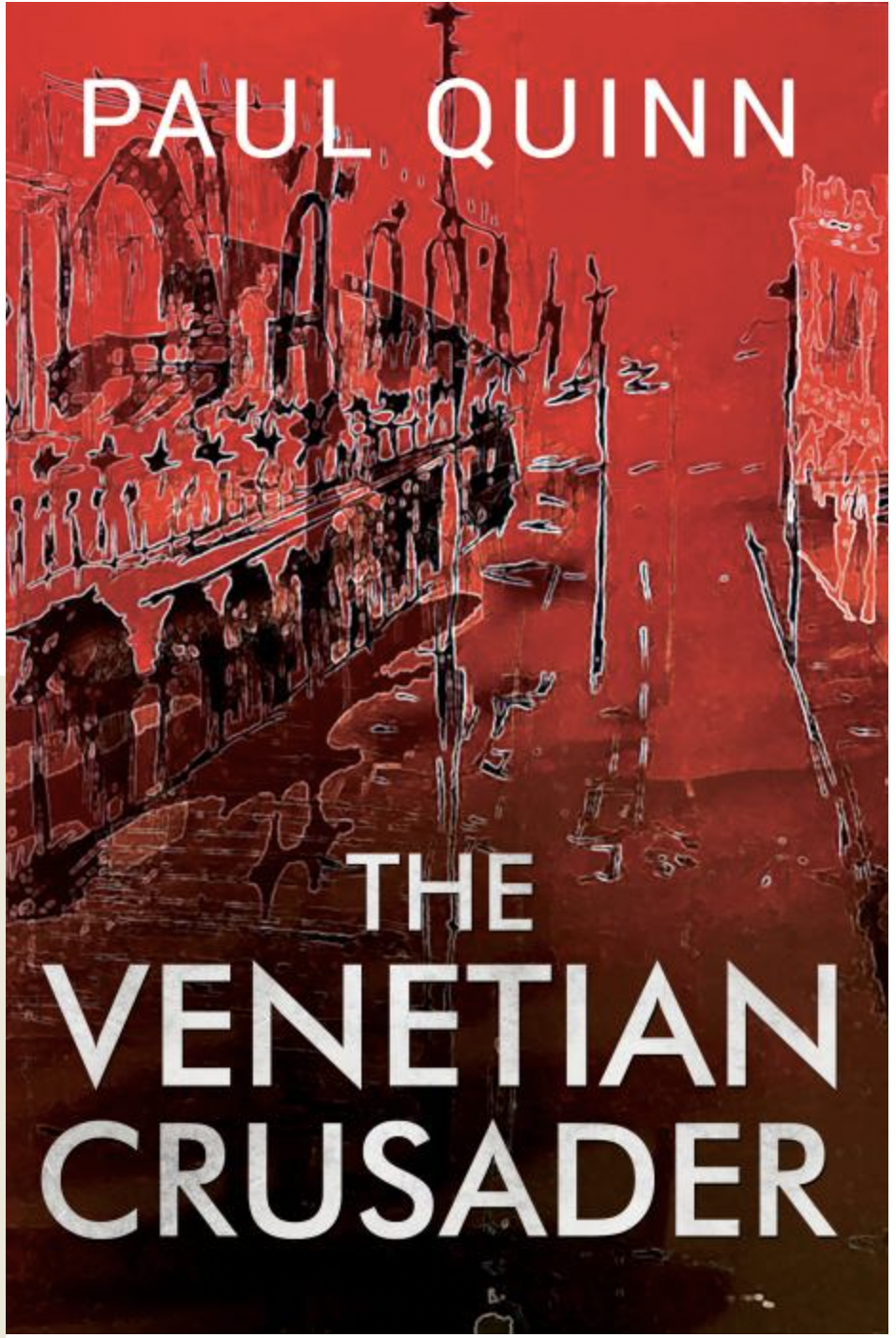

Our Writers Group was privileged on October 21 on Zoom to welcome barrister Paul Quinn, author of newly released historical novel The Venetian Crusader, to discuss successful publication of a historical novel set in Venice around 1220. His publisher is Cambridge UK-based Pegasus, with access to the huge UK and European market. Paul's most remarkable story was about how he had swamped publishers with his manuscript.getting nothing but rejections and worse, no response at all. One day Pegasus called asking, a little impatiently, "what did you think of our offer?" "What offer?" "We emailed it to you a fortnight ago." Paul found it in his Junk email box. Paul came to us via our member Robyn, herself a historic novelist (not quite yet published), and whose two friends Marie and Lydia from her historical novel writing group (external to Bearbrass) came as visitors to hear Paul.Our notes from his talk are filed here under "Read More".
Writers Group welcomes visitors
A pleasant aspect of our Bearbrass Writers Group is the visitors who drop in on Zoom from around the country. Last Thursday October 21 we had two historical fiction writers Marie and Lydia and author/barrister Paul Quinn who has just had his novel The Venetian Crusader published by a Cambridge UK publisher.
Marie is doing a creative writing PhD at Latrobe and is part way through her draft novel based around a homeopathic hospital that operated in Melbourne from 1869-1934. It eventually became Prince Henry Hospital. There are two fictional protagonists and various real events incorporated.
Lydia is researching her late father’s life and his wartime roles as a Czech with the British forces. “The scary part is when as a writer you find the bits you have made up to cover holes in the material turn out to be right,” she says.
Our author Paul expected to join us from Broome but managed to squeak into Victoria with hours to spare. Our notes of his talk follow:
The story germinated when he visited the Venice Biennale while still working full time as a Melbourne lawyer. He visited the archaic Arsenal ship-building factory there and “it dragged me in to discover more of its story”. He began reading and researching the 13th century and the role of the 90-plus year old Doge, who was blind but still led the 4th Crusade. His manipulations of the French crusaders became the source of Venice’s later wealth and power. This inspired Paul to further research the world politics of that era, which even involved Genghis Khan. It all became a fascinating tale of power and its abuses.
He was concerned about the writers’ problem of ‘researching it all to death’ and not getting the work written.
The final work became 85,000 words (about normal for a modern novel) “but I took out as much from the draft as I put in,” he says. “So many facts I had painstakingly collected, I chucked out. The best money I spent was engaging a ‘structural editor’ Alison Arnold to help me marshal the material. I wanted a wide audience to enjoy the book, not just history buffs. That’s why I have a lot of chapter endings with ‘hooks’ to pull the reader into the next episode.”
Lydia: “What impact did your lawyer background have on your writing?”
Paul: “Lawyers are good as assembling background material and writing clearly, but I still had to learn the skills of creative writing. For example, I invented the Doge’s bodyguard Achille to become a thread linking many aspects of the story. I had to work out how people talked in that era, such as what swear-words they used, and I could make use of direct speech preserved in old documents, but had to form it all into a common style.”
Member: “How did you go finding a publisher?”
Paul: “Australian publishers are very conservative and local agents were almost impossible to work with, especially in last year’s Covid conditions. But general fiction has a vastly bigger market in the UK and Europe. I sent off a lot of applications there and got the usual responses of “ignore” or “reject” and had to remain persistent and not lose morale. I was getting to the point of deciding to self-publish when I got an email from the Cambridge publisher, “Have you thought any more about our offer to publish your book?”
“What offer?”
“We made it a fortnight ago.”
Paul found that the first email had gone into his ‘Junk’ folder!
Asked about how hard he had blitzed publishers, he said they each had different rules and specs, such as wanting just a synopsis or the first 3 chapters, or demanding exclusive handling. He couldn’t accept that as it could mean a series of waits of three month each from each publisher.
“In Australia publishers love books that involve a series of five or ten novels – like a Roman Empire series - because readers get hooked from the first one.”
His artist wife Cathy and his brother, who’s a digital artist, provided the essence of the cover treatment, with a graphic of the Doge’s palace and a successful suggestion for Venetian red to make the book stand out in a shop.
Publishers these days expect authors to do serious marketing of their book, and to talk bookshops into taking a pack of them – possibly on consignment. He knows of one British author who deliberately leaves his book on the seat on the Tube. He’ll tell someone, “No, I finished it, you’re welcome to it” and this gets word of mouth going.
Paul’s next novel is set 70 years in the future. #
